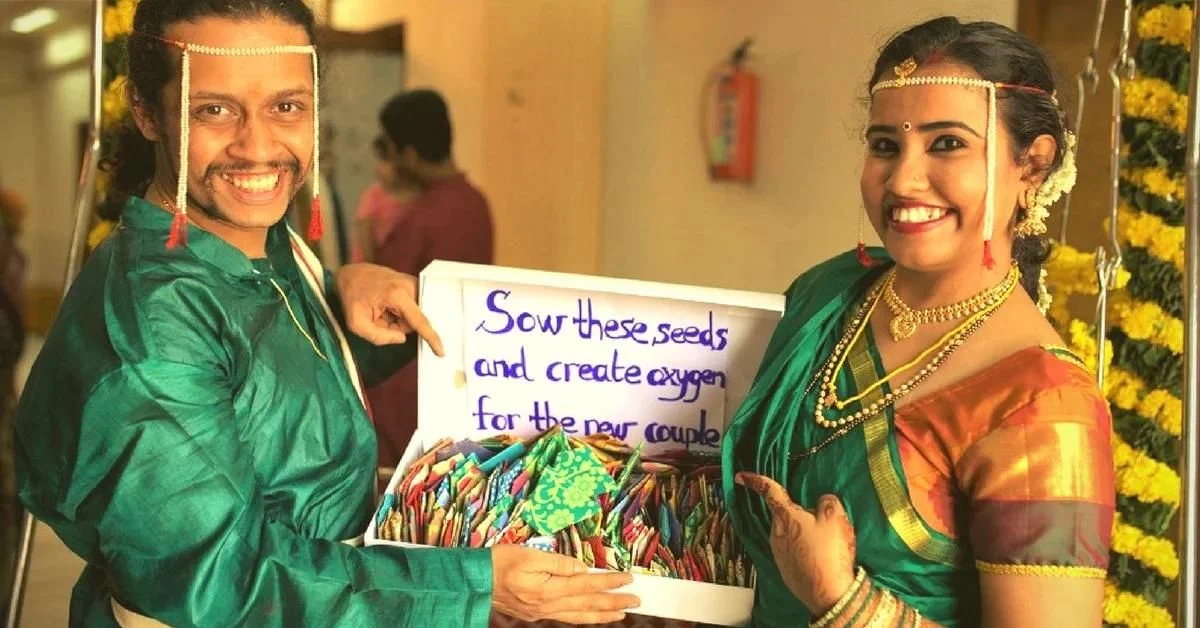It’s marriage ceremony season and the time to make merry. Weddings contain a whole lot of planning and a spotlight to element. Within the age of occasion planners, each facet is taken care of to the T. These huge, fats Indian weddings are a whole lot of enjoyable for the visitors and the households organising it.
Sadly, the marriage venues are strewn with paper cups, plastic bottles and waste after the festivities are over. This waste, together with the opposite moist waste, goes to the landfills. As weddings get bigger, so does the wastage.
An article in Floor report states that a mean Indian marriage ceremony generates round 200-300 kg of meals waste, which is nearly 20 % of the meals cooked. Cumulatively, it quantities to $14 billion price of meals.
Individuals have slowly began shifting to eco-friendly weddings the place they think about the environmental price and footprint. From utilizing 19-year-old butter paper for packing to going fully plastic-free and composting/recycling all of the waste produced at weddings, {couples} are going the additional mile to save lots of the planet.
Listed below are some methods so that you can plan a sustainable marriage ceremony, with out compromising on the enjoyable or grandeur:
- Ditch the paper invite
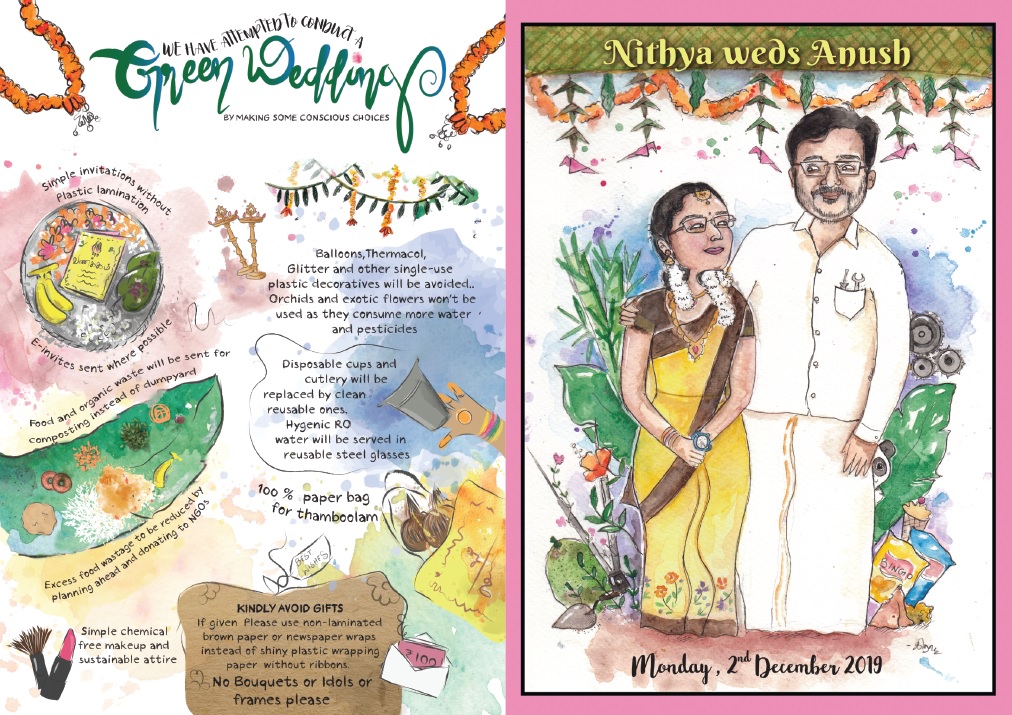
Step one in any marriage ceremony planning is the invitation. Many {couples} are selecting to fully go digital.They only ship invitations by Whatsapp or personally invite their family and friends.
When you should do some printed ones for the older relations, go for seed paper invites which then develop into vegetation.
Madhuri Balodi and Aditya Aggarwal’s invite requested folks to return to the marriage utilizing public transport, cycle or electrical autos (EV)s. In addition they requested visitors to carry vegetation as an alternative of flowers.
Different {couples} are additionally encouraging visitors to keep away from any plastic packaging for the items and a few even ask visitors to contribute to environmental organisations of their selection.
- Let your Baraat be electrical
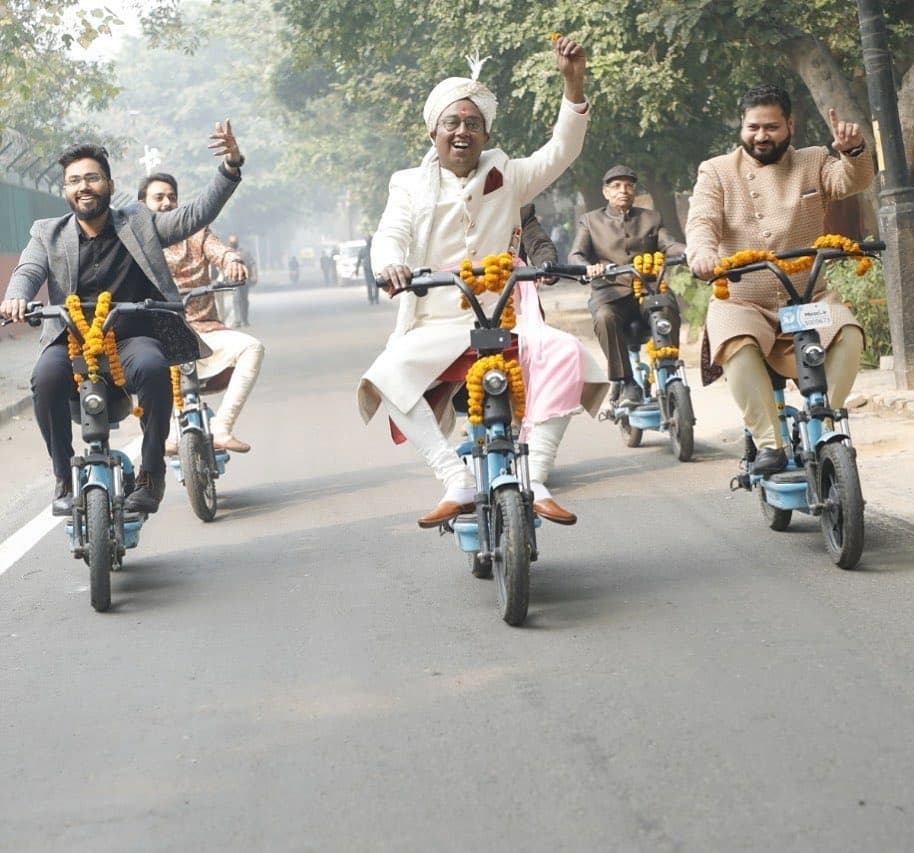
Grooms normally arrive on horseback or automotive, and these baraats many a occasions, are strewn with glasses used to drink alcohol or flowers. To cut back the carbon footprint, Aditya arrived for his marriage ceremony on an e-bike, whereas his buddies cycled to the marriage.
In any case, a sustainable marriage ceremony begins proper from the entry. The 30-35 baraatis got here on cycles or rented e-bikes.
Like him, Ashwin Malwade arrived for his marriage ceremony in an electrical automotive too.
Some organisations are additionally choosing up and recycling the waste that baraats generate.
- Go for minimal, reusable decor
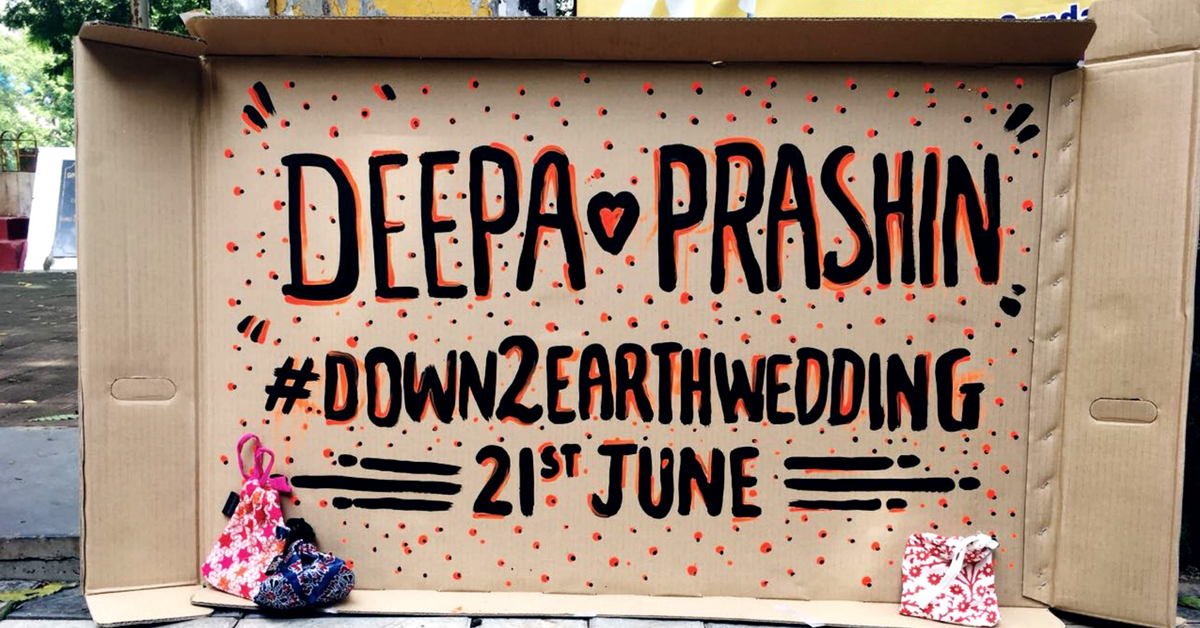
Make the decorations a enjoyable course of by involving your folks and unleashing your creativity. Use previous cardboards and papers to create the decor of your selection.
Prashin Jagger and Deepa Kamath painted welcome boards utilizing an previous cardboard field, which appeared enticing. In addition they had their buddies make hand-made posters utilizing previous papers and cardboards to clarify their intention.
“In actual fact, the principle welcome board with our names was additionally produced from a cardboard field of an LED TV bought by a good friend. With some pens and hues, he turned the board into one thing particular inscribing our names–and it was lovely,” Deepa added.
You can too enhance utilizing newspapers and previous glass bottles. Strive to make sure that the decorations don’t have plastic and use few native, seasonal flowers. You should utilize vibrant garments to brighten.
- Lease cutlery/ Use banana leaves
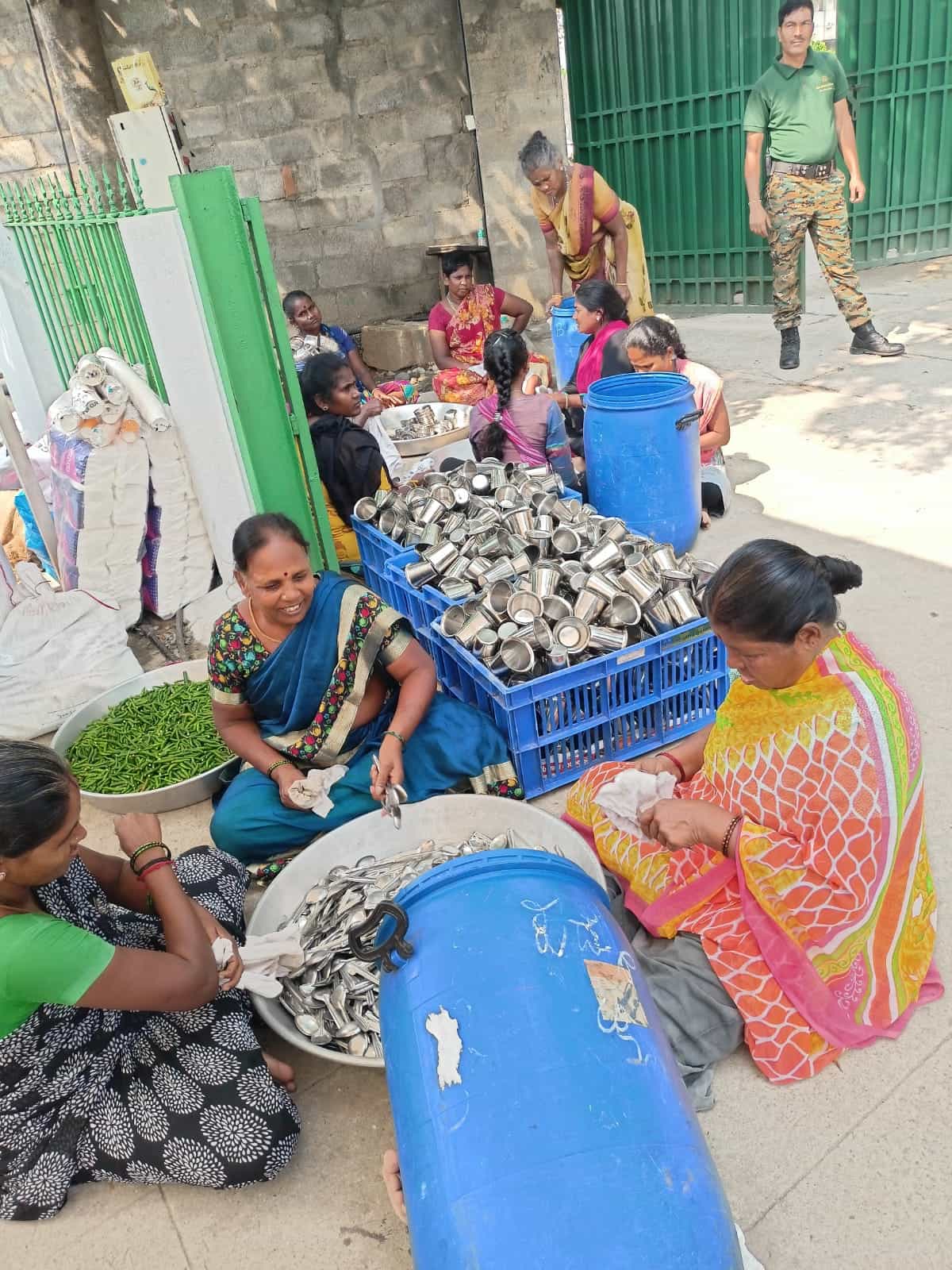
The most important contributor to marriage ceremony waste is certainly meals. To serve meals, one wants several types of cups, spoons, forks, glasses and plates. One other huge drawback are the plastic bottles which most weddings have, which everybody considers extra hygienic. Nonetheless, the answer to all that is reusable cutlery.
Reusable cutlery will be hygienic too, as many weddings in recent times have proven. Many organisations throughout cities lease out cutlery for giant occasions at a nominal price, or freed from price.
Bengaluru moms Anupama Harish and Charulatha R selected to lease metal cutlery from Adamya Chetana, a free cutlery financial institution in Bengaluru. In addition they served meals on banana leaves and used metal plates just for the reception. On this marriage ceremony, by utilizing metal cutlery, 30,000 single-use disposables had been averted.
If renting cutlery just isn’t an choice for you, ask your caterer to make use of glass, metal cups wherever potential or go for edible cutlery. You’ll be able to even use upcycled cutlery.
- Go for a easy menu
Wastage is elevated when now we have a number of cuisines and counters. Many are choosing native, seasonal components and going for a easy menu excessive on style. The trick is to go for dishes which contain much less cutlery.
Prashin and Deepa’s marriage ceremony menu consisted of six dishes–produced from seasonal greens, cooked merely and tastefully.
One other couple served wholesome meals, choosing wholesome rice varieties and millets. They didn’t use white rice, maida, sugar or refined salt, utilizing solely naturally and organically grown gadgets.
{Couples} are additionally utilizing fabric napkins as an alternative of tissues whereas serving meals and ensuring that the desk on which meals is served is both uncovered or lined in fabric to keep away from rolls of paper being wasted.
- Put on household heirlooms
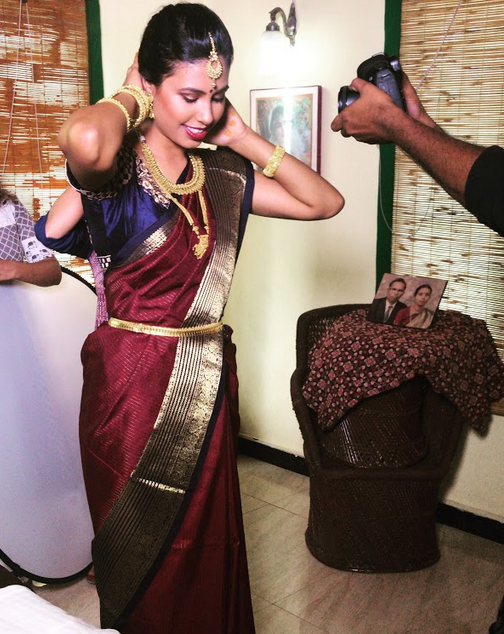
Some of the vital choices we make, after selecting our partner, is what we’re going to put on. We spend lakhs on our marriage ceremony trousseau and hardly discover time or events to re-wear them.
When Veena Balakrishnan received married, she wore the identical saree her grandmother wore for her marriage ceremony virtually 50 years in the past. She additionally wore her household jewels, selecting to not purchase something new.
Very like how Madhuri Balodi and Aditya Aggarwal went inexperienced with their selection of autos to reach on the marriage ceremony, in addition they selected to purchase their outfits for simply Rs 2,500 and Madhuri has since reworn her saree 5 occasions after the marriage.
- Compost/ recycle the waste
As a lot as we would like, one can’t fully keep away from wastage. What’s vital is managing it successfully to make sure that it doesn’t pollute the atmosphere.
By tying up with native firms or tying up with organisations that compost, {couples} are guaranteeing that each one the meals waste is composted. At Veena’s marriage ceremony, the vegetable waste was was pulp and the used banana leaves and areca plates had been despatched to a compost pit. The flowers had been was backyard fertilisers and distributed to close by societies.
At a marriage organised by Greenmyna, sustainability consultants, there was a compost pit stored the place all of the waste was being thrown. This additionally created consciousness amongst the attendees.
At Ashutosh and Nidhi’s marriage ceremony in Bengaluru, Vasuki Iyengar, together with the Stable Waste Administration Spherical Desk (SWMRT) group dealt with all of the waste. The marriage generated about 1,000 kg of moist waste, which was was 300 kg of compost.
The dry waste was segregated and despatched for recycling.
- Give the leftover meals to the needy
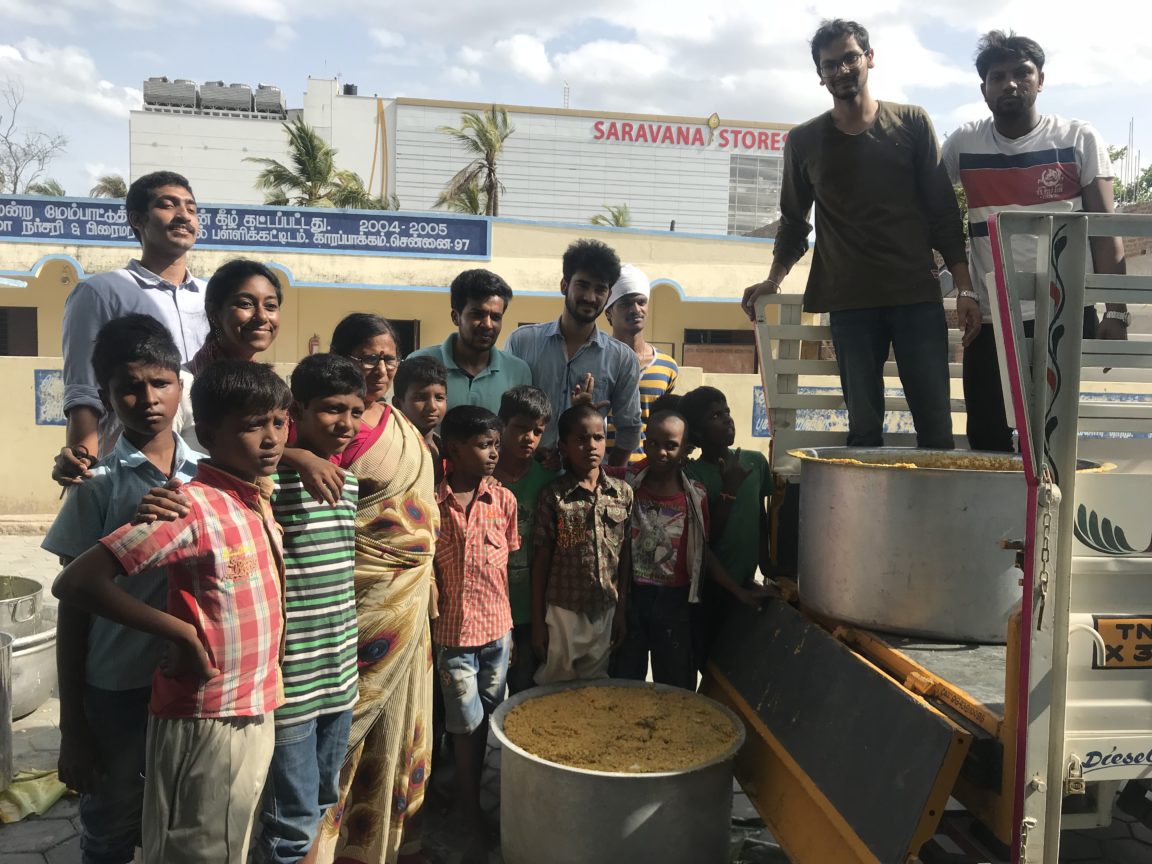
Whereas we are able to’t do something concerning the meals leftover in folks’s plates, we are able to positively guarantee that no cooked meals goes to waste. Make your weddings extra significant by tying up with organisations that serve meals to the poor and ask your caterer to cook dinner some further meals for this objective.
At Veena and Vignesh’s marriage ceremony, the surplus meals and extra meals had been distributed with the assistance of Robinhood Military, a famend non-profit organisation that routes surplus meals from eating places to the much less lucky sections of society in cities throughout India and 12 different nations.
You can too distribute it at native orphanages/previous age houses.
- Give significant return items
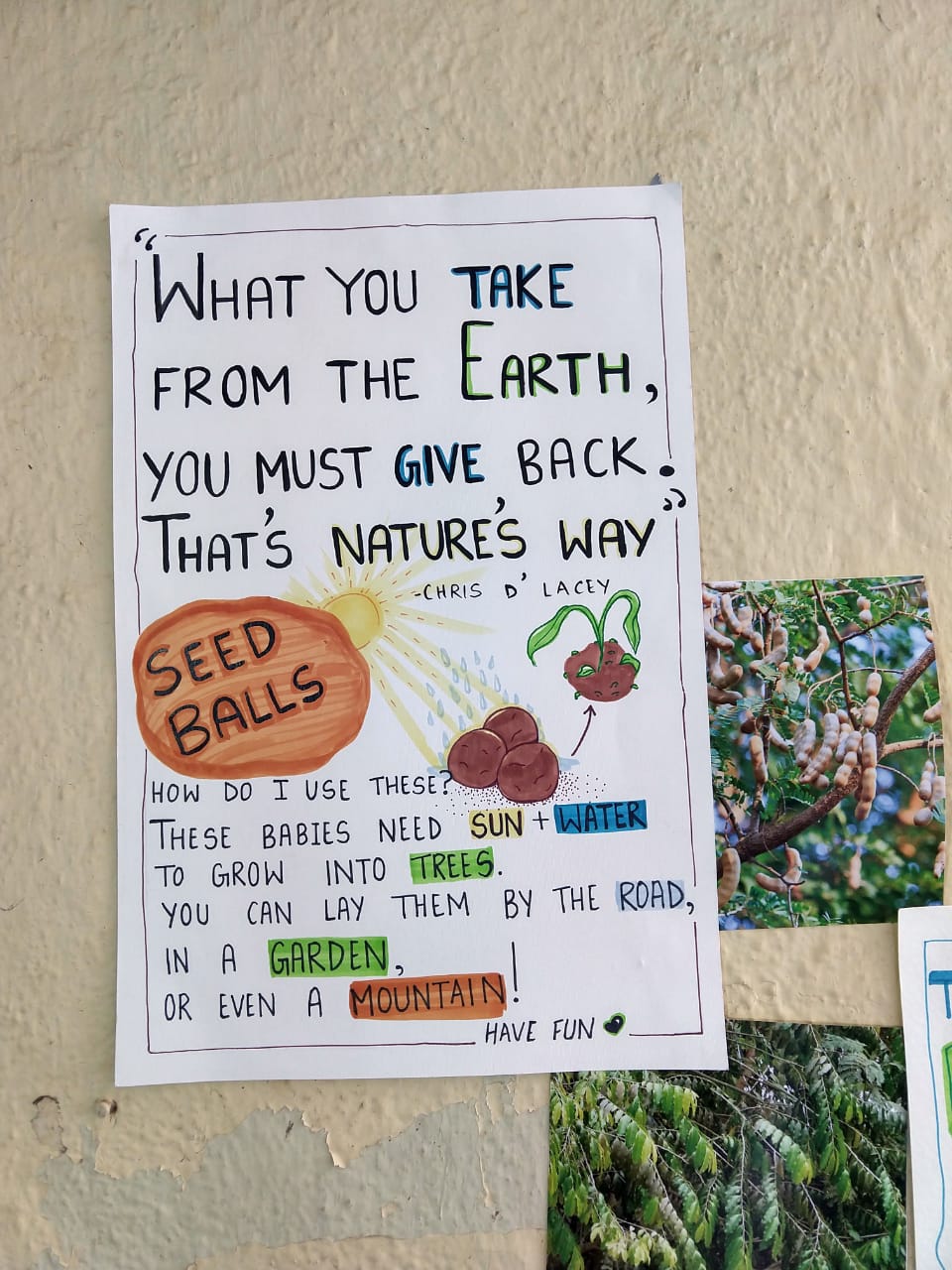
One other main a part of weddings are the return items, which have turn into much more extravagant as we speak. {Couples} are going inexperienced by gifting seed balls, saplings which individuals can simply plant at residence.
At her son’s marriage ceremony, Anupama gave everybody naturally dyed shirt items. She used a 19-year-old butter paper, which she present in her attic, to wrap the items. She additionally packed all of the arishina kumkuma (turmeric and vermillion powder) that she had at residence, utilizing paper.
At Veena’s marriage ceremony, visitors got a scrub made out of filter espresso collected from native cafés, packed in previous paper wrapping!
You can too go for reusable fabric or jute baggage to offer your items.
- Select minimalism
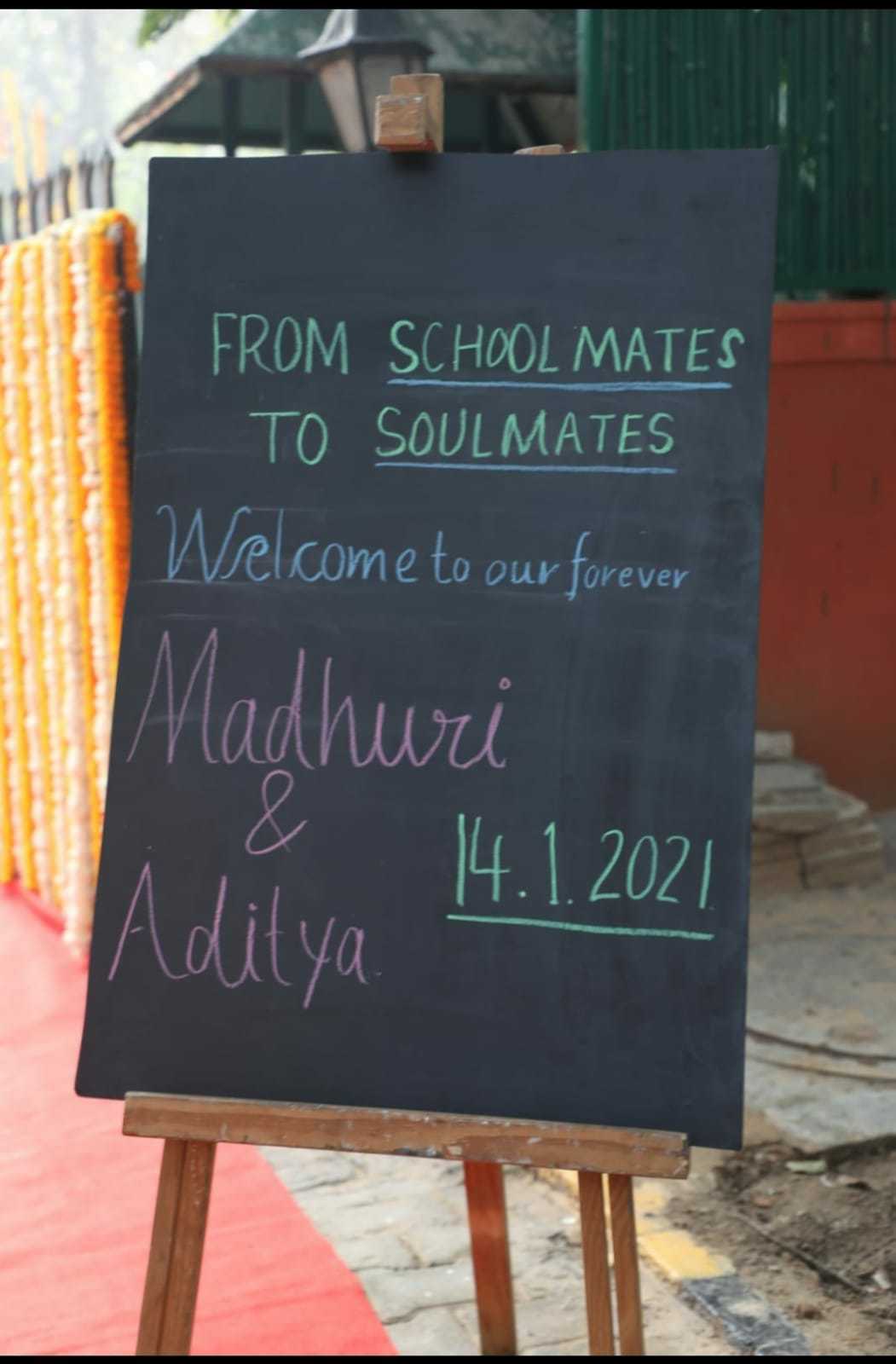
Proper from the venue to the meals and visitor record, one of the best ways to actually give again to nature is by going easy. You’ll be able to name your native coconut sellers, chai sellers and pani puri sellers to arrange stalls on the marriage ceremony, like Madhuri Balodi did. This ensures that there isn’t any wastage.
You can too cut back the lengthy ceremonies over many days. Veena and Vignesh’s marriage ceremony consisted of only one brief ceremony.
Additionally, inexperienced weddings are cheaper than common ones, because of the discount of flowers, bottled water, thermocol and so forth.
Like Madhuri says, “Happiness is paramount, not the dimensions of the marriage.”
Edited by Padmashree Pande
